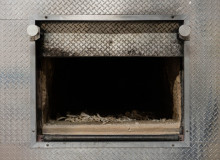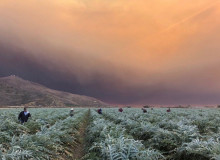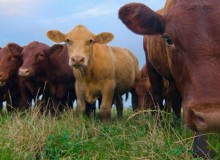Search
University of Florida
Saturday, April 02, 2016
The World Health Organization has called stress the “health epidemic of the 21st century.”
Tags: mental health, urban living, environmental stressors
The George Washington University
Wednesday, March 04, 2015
According to Lance Price, overuse of antibiotics in livestock could set us back nearly 100 years in public health — but the consumer can do something about it.
Tags: antibiotics, antibiotic resistance, cattle, animal health, food system, food safety

Cremated remains lie in the incineration chamber at the Paradise Memorial Crematory in Scottsdale, one of the state’s largest. Partly fueled by the pandemic, the U.S. cremation rate reached 56% in 2020; it was 67% in Arizona. (Kevin Pirehpour/Cronkite News)
Arizona State University
Friday, April 02, 2021
In Arizona, where 16,842 have died in the pandemic, the smoke and the hum of crematoriums working overtime have left some neighbors desperate for relief from the odor and pollution.
Tags: air quality, public health, covid-19, air pollution, pandemic, storyfest2021

California farmworkers have had to endure heatwaves, wildfires and a pandemic that continues to spread during peak harvest season for almonds and wine grapes. (Photo courtesy of UFW/United Farm Workers)
Arizona State University
Friday, April 02, 2021
The race to deliver fresh foods during peak harvest season means farmworkers are facing the threats of climate change acceleration and COVID-19.
Tags: agriculture, public health, farm worker health, Wildfire, air pollution, covid-19, storyfest2021
Wil Burns speaks at the Negative Emissions Workshop at George Washington University. (Marija Stefanovic/GWU)
State University College at Buffalo
Monday, December 11, 2017
Wil Burns is an expert in the field of environmental policy, with a research focus of climate geoengineering governance. Planet Forward sat down with Burns to discuss the Paris Climate Agreement and other climate change policies.


